what is life in the Middle East like? life style, photos & more
“Before going there, I’d had certain preconceptions about the Middle East, mostly derived from the media. Once I arrived, my preconceptions were slowly replaced by reality itself, which proved to be rather less coherent and understandable than what the media had depicted” – Joris Luyendijk
Turn on the TV, turn up the radio, open the newspaper, or more likely look up those sweet funny memes, and you will know for sure all Middle Eastern countries are one hot hell of a mess. War, poverty, famine, disease, sectarianism, religious extremism, totalitarianism, and generally speaking a fogagy, a shapeless amalgam of the worst misfortunes humanity can have, afflict, in the average Westerner’s mind, all countries from Morocco to Pakistan.
It is no wonder then that when I informed my friends and family that I’d travel to Iran I raised quite a few eyebrows and a considerable number of objections, some of which I was low-key obsessed of as well. But, now that I am here things are… normal.
It is nothing like I had imagined!
o I’ve started asking myself why. “Why are there so many misconceptions about the Middle East in the West?”, “Why was I afraid to travel through Muslim countries?”,”Why would my friends think Iran is full of bombs and terror?”
I came, after many hours of thought, to the conclusion that the answer to this misunderstanding of the core of the Muslim world is intertwined with the reasons that lie in the first lines of this article: media depiction. Yet the answer itself felt strange. Wouldn’t it?
Wouldn’t the media, usually so divided on domestic affairs, provide distinct opinions about Iran?
So why do they all say the same stories?
Wouldn’t other documents or articles, especially in the Internet era, provide alternative information to what news media report?
So why isn’t there any such readworthy thing?
Wouldn’t members of the society so used to empiricism, such as the European one, avoid to proclaim certainty on something that they didn’t directly experience?
So why are all my friends, and why was I certain about these notorious Middle Eastern misfortunes when they prove to be, in more than just a few cases, false assumptions?
These sure are a lot of questions…
I was short on answers and my knowledge only allowed an incoherent idea of why there is such a huge gap between perception and truth about the countries I had seen in the Middle East.
So I took it upon myself to look for the main reason behind these false assumptions and finally came across something interesting.
In 2006 the Dutch journalist Joris Luyendijk published his book “People like us: Misrepresenting the Middle East”. Luyendijk, a veteran correspondent in the Middle East, having worked in an area spanning from Sudan to Iran, exposes the mechanisms of how Westerner’s ideas of the Middle East are shaped by the media.
His work is focused on Arab speaking countries. My experience of the Middle East, on the other hand, is so far is related to only non-Arab countries, and the biggest expectation vs. reality shock I’ve had was in Iran. Now, just to avoid any confusion, as Luyendijk himself tellingly says, people in Iran speak Persian and “you make as good an impression speaking Arabic as you do speaking German in the Netherlands” and “Dutch is closer to Turkish than Arabic is”. Nevertheless, what he explains about the Arab countries can safely be used as a parameter for what happens with regards to media depiction of all Middle Eastern countries.
So, with the help of his and a couple other intellectuals’ eye-opening quotes, I will explain in a few points how we came to the point where we, you included, experience this gross misrepresentation of these countries.
“The news agencies are the eyes and the ears of the world”.
To begin with, the mechanisms through which information is provided to journalists is not what you might think. Every new story is reported to the newspapers by news agencies. These are institutions that have observers worldwide that are tasked with finding what event is newsworthy, to classify news and pass them on to the newspapers and journalists, who in turn produce the actual articles. This has far-reaching implications.
The first is that all the correspondents, whether they are where the news is happening or not, have the same access to information as their colleagues do half a world away. More importantly, their colleagues in the office in London, Paris, etc. get it sooner and thus pick the story the correspondent should work on.
The second implication, consequently, is that correspondents reporting from somewhere are simply there for the show, and have little of their own to add to what you yourself would know if you subscribed to the news agencies.
This explains why the news we hear about the Middle East in the West are always the same even if reported by different newspapers: their core stories are provided by the same agencies.
“News is also a kind of show business”
This is a big one!
A newspaper’s survival depends on how many people’s attention it can command. Attention is, so to say, a newspaper’s currency, and the main means to profit for its owners. So everything, from what is considered newsworthy, to the news’ placement in the paper, to the way they’re expressed and feelings they try to evoke, everything… is geared towards gaining more readers or viewers.
As mentioned above, although this doesn’t cover the entirety of their work, correspondents are where they are because of the show. For any news the dateline, the line at the head of a dispatch or newspaper article showing the date and place of writing, is more important than the news itself, since info can be comfortably obtained through the internet in any news office in the world. What matters is the feeling that the reader gets when he\she thinks the news has been genuinely worked on when, in fact, it wasn’t.
Not only that, but when you see any correspondent answering questions from the news studio live you can be sure that both questions and answers were prepared and rehearsed to give them a confident and impactful sound.
As if that wasn’t twisted enough since it is easier to engage readers by using their own prejudices and internalized assumptions, many journalists skillfully omit, decontextualize, or emphasize part of the truth to simply get more attention.
Starting to lose faith in your prejudice of the Middle East yet? Oh, but there’s more!
Of course after so much work to get more attention than their competitors, newspapers & co. become conveyors of more than mere impartial news. They become conveyors of publicity. People being interviewed in the Middle East by Western journalists want to make sure their name and organization’s name is spelled right.
Such manipulation on the part of the state is not uncommon. As another example in one article Noam Chomsky says: “Iran is regularly depicted as the greatest threat to world peace—in the U.S., that is. Global opinion differs, regarding the U.S. as the greatest threat to world peace, but the American population is protected from this unwelcome news by the Free Press.”
And so it goes.
“News is only what is different from the every day – the exception to the rule. With an unknown world like the Arab one (read: Middle East), this has a distorting effect. When someone is shot in Dam Square in Amsterdam, it’s news, but Dutch people know that people aren’t normally shot there. […] But how much do Dutch people know about the Middle East? […] If you are only told about exceptions, you’ll think they are the rule”
Listening to media outlets, being bombarded with the same type of news over and over would have us think that all throughout this region really nasty things constantly happen. And since we hear it often it must be true all the time, right (Goebbels taught this)? Now, to be technically correct the things that are reported on by the journalists do actually happen (hopefully), but there is one catch to it: how much do you know about the Middle East? Because…
“The ignorance of even loyal readers was sometimes so great that it seemed beyond remedy. […] It makes quite a difference if you have oil and gas or not, enough water or not, if you’ve been occupied by colonial powers, or you have to share rivers. […] I’ve probably profited from the ignorance about the Arab world”
The above manipulations to the idea that the Middle East is a distant world, helped by the overall geopolitical and historical ignorance about this region throughout Europe, have nefarious effects.
Events that happen in a country in the region magically cross space and time in the average reader’s mind. The truth loses itself in foggy, shadowy corners of his\her mind. A few fallacious logical or emotional speculations later a dangerous tendency to a generalization in perception appears: The Arabs have oil? They all do! The majority of Muslims are Arabs? No, wait, all Arabs are Muslims. And viceversa! And they all hate the West, didn’t you know? And they are all at war! Bonus theme: refugees!
And look where all this leads to! Safe, beautiful Middle Eastern countries like Turkey, Azerbaijan, Iran are discarded as hellholes. Interactions such as tourism or small-scale investments are reduced. No contact between cultures develop. This makes all this ignorance grow like cancer. Distrust grows, nationalist parties thrive in Europe, isolated young Muslims there are easier preys to social inadequacy and risk finding recognition in the arms of Jihadists, etc.
And all of this because of media misrepresentation! This is undeniably why all throughout the West our ideas about this part of the world are wrong. In essence, if you haven’t been here what you know about the Middle East is what you have seen through a screen. Your prejudice is built on what you have no experience of. Plato would have something to say about this.
It may seem gratuitous to criticize journalism. Especially since the press and associated press freedoms are in the West considered to be vital for upholding the values we live by: egalitarianism, democracy, personal freedom, etc.
Yet you’ll find out that this is by no means the only book about media manipulation around. As an example, as far back as 1988 Noam Chomsky and Edward S. Herman proposed in their book “Manufacturing Consent: The Political Economy of the Mass Media” the idea that media institutions are self-serving apparatuses working close to and being willingly manipulated by the political establishment. A paid-for propaganda machine.
It is, under this light, our personal duty not to lock ourselves in a media echo chamber, to think critically, to look for information on both sides of a fence. As one of my favourite fellow compatriots, Ioan Luca Caragiale, wrote over a century ago: “Take a half an affirmation of an opposition newspaper and mix it well with half a disclaimer from a government one – this is often a good recipe for finding out the truth.”
Better still, if we can afford it, it is on us to travel the world, to speak to people, to ascertain the truth with our own senses, to be the real masters of our opinions, to enlighten ourselves. It is even more crucial, once we have done it, to denounce the untruthfulness of lies and the fear and animosity that stem from ignorance. It is important. It is useful. Surprisingly, it can also be funny.
Because this part of the world is not what you’ve been taught.
Look with your eyes, think with your head!
Are you planning to travel to Iran? Check out our Iran tours.

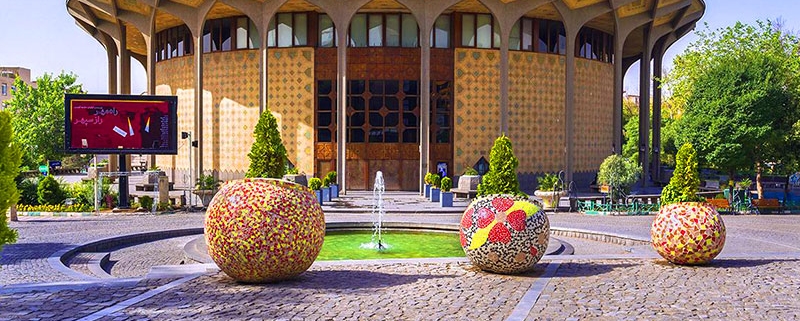
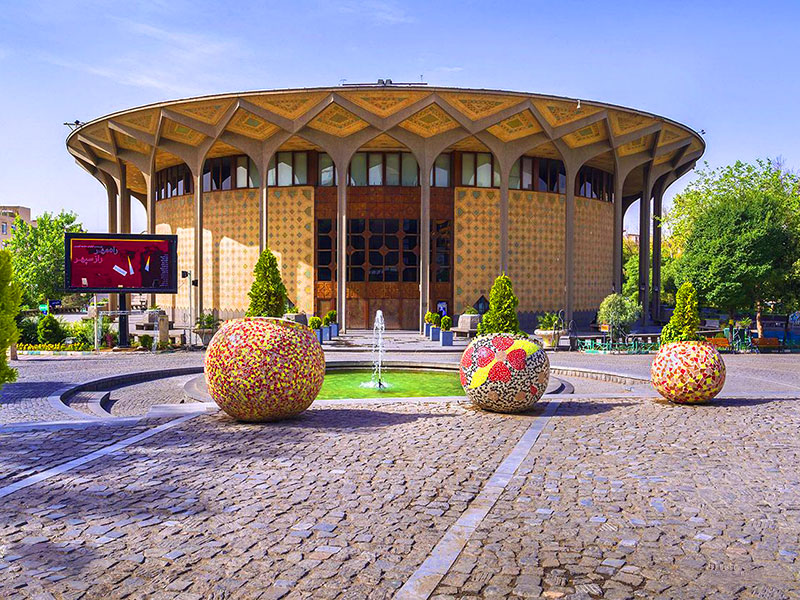
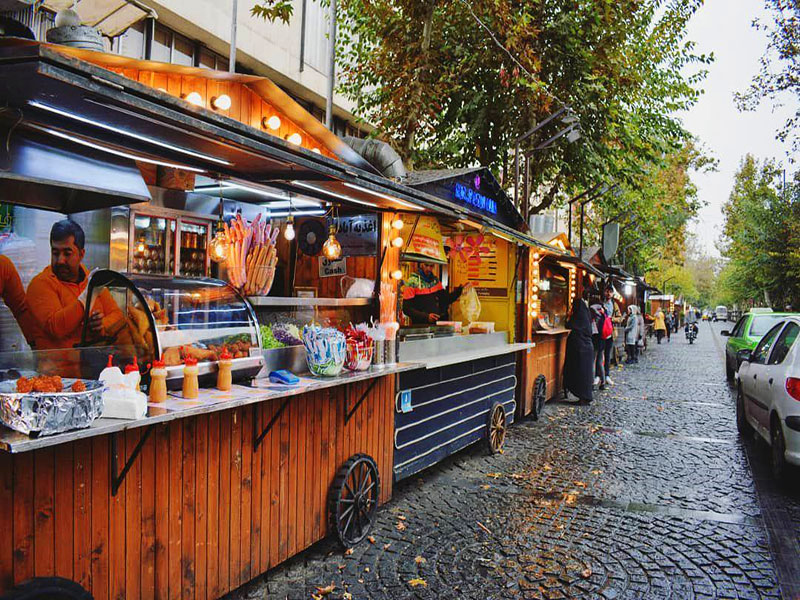
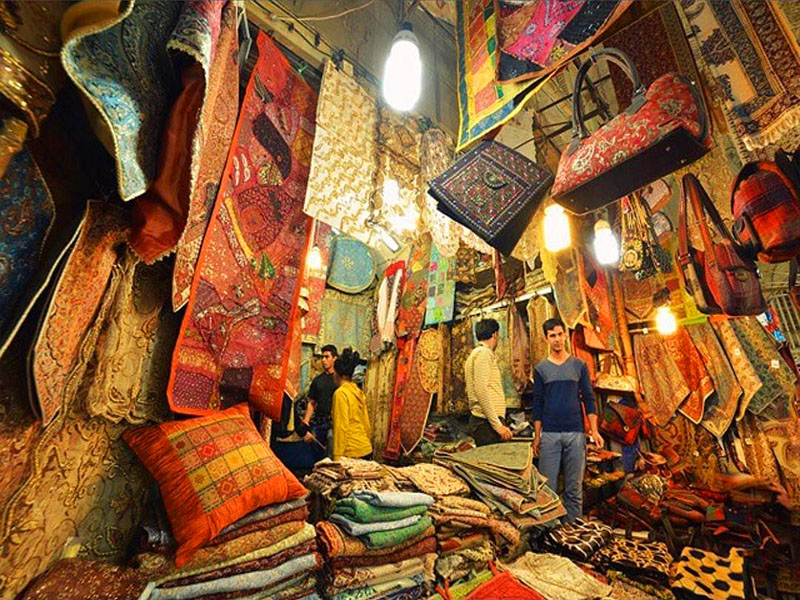
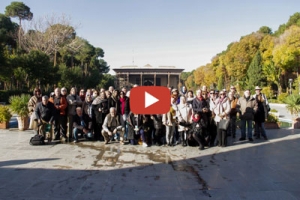


Leave a Reply
Want to join the discussion?Feel free to contribute!